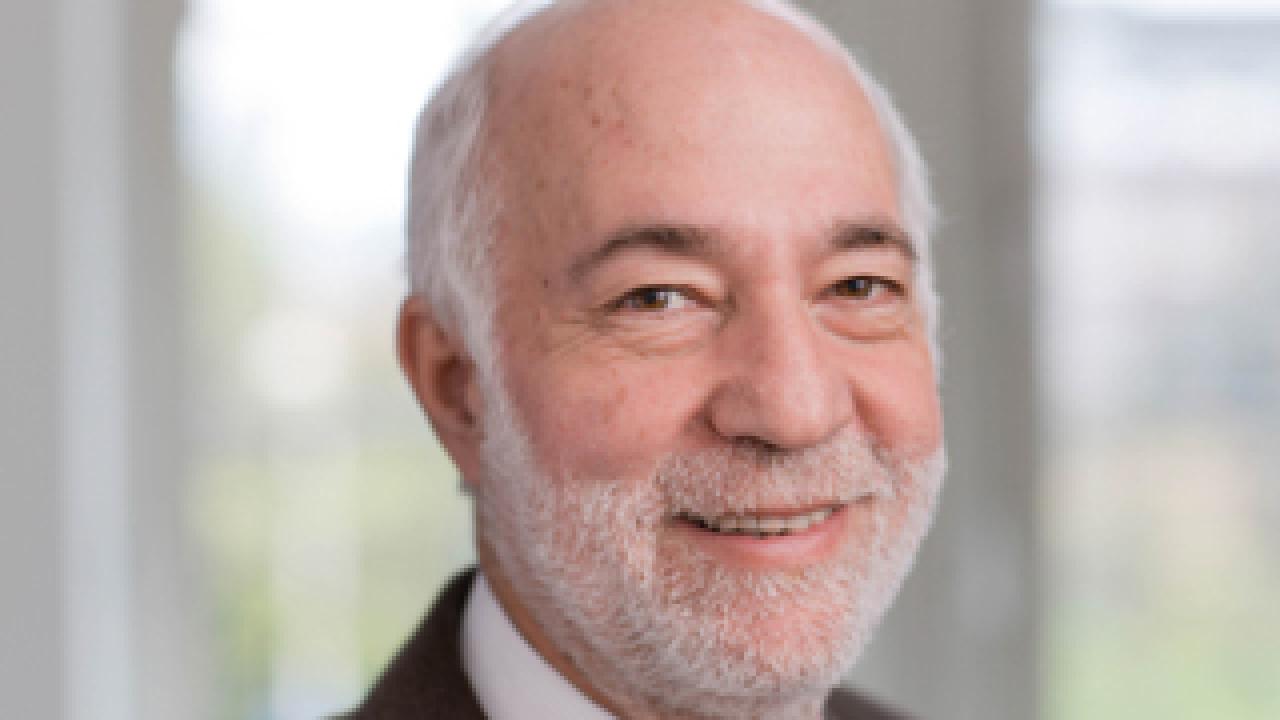Daniel Sperling, director of the Institute of Transportation Studies at the University of California, Davis, is one of two recipients of the 2013 Blue Planet Prize. The prize, announced today by the Asahi Glass Foundation of Tokyo, has been described as the Nobel Prize for the environmental sciences.
Sperling is an international expert on transportation technology, fuels and policy, with a focus on energy and environment. His research is directed at accelerating the global transition to cleaner, more efficient transportation and energy, and mitigating climate change. The prize, which comes with a $527,000 (50 million yen) award, recognizes Sperling for his unique ability to bring together the top thinkers and strategists in academia, government and industry to develop new vehicle- and fuels-policy approaches that are models for the world.
“I am deeply honored to receive the Blue Planet Prize, and I share it with my many brilliant and passionate collaborators,” Sperling said. “I hope to use this time in the spotlight to promote universities’ tremendous reservoir of policy-relevant knowledge — particularly policy that averts the pending disaster of global climate change. My primary goal is to bring science to policy.”
Sperling was chosen to receive the Blue Planet Prize from among 106 candidates representing 27 countries.
“UC Davis faculty work every day to bring sound science to the world’s most pressing problems, and Dan Sperling is a wonderful example of that,” said UC Davis Chancellor Linda P.B. Katehi. “We are proud of his accomplishments and pleased that his efforts are being recognized through this prestigious prize.”
A professor of civil engineering and environmental science and policy, Sperling founded the Institute of Transportation Studies in 1991. ITS-Davis is now the world’s leading academic program in transportation technology and policy, thanks to Sperling’s talent for building enduring partnerships with industry, government and the environmental community; integrating interdisciplinary research and education programs; and connecting research with public outreach and education. Today the institute has 60 affiliated faculty members and researchers, 120 graduate students, and a $12 million budget.
ITS-Davis researchers pursue topics as diverse as consumer response to advanced vehicle technologies, such as hybrid and electric cars; biofuels production; hydrogen fuels infrastructure; telecommuting; and the potential for converting the globe to 100 percent renewable energy.
Sperling championed early research into lifecycle analysis, with his students going on to develop the world’s most widely used lifecycle-analysis models for transportation fuels, and led the effort to transfer lifecycle assessment from labs into policy. For transportation fuel, lifecycle assessment means accounting for the emissions that occur in every stage of a fuel’s production and use.
The lifecycle approach is a critically important tool used to calculate greenhouse gas emissions that contribute to climate change, and other emissions that harm the environment. It forms the basis of many new climate and environmental policies around the globe.
Sperling noted that this year, carbon dioxide levels in the atmosphere exceeded 400 parts per million for the first time in human civilization. Still, he is optimistic.
“Solutions are all around us,” he said. “New technologies and new behaviors will transform our cities and energy systems. It is not easy, but with great effort we can recover our healthy blue planet.”
In 2007, then-Gov. Arnold Schwarzenegger appointed Sperling to the California Air Resources Board. Sperling co-led the California Low Carbon Fuel Standard study, which formed the basis of the first standard of its kind to tackle carbon pollution from transportation fuel. The LCFS is in effect today in California and under consideration in other states. It is a model for similar polices in Canada and the European Union.
Sperling has authored or co-authored over 200 technical papers and 12 books, including “Two Billion Cars” (Oxford University Press, 2009). In 2010, he received The Heinz Award for addressing global change caused by the impact of human activities and natural processes on the environment.
This year is the 22nd year of the Blue Planet Prize. Previous recipients include: David R. Brower, chairman of the Earth Island Institute; Lester R. Brown, founder and president of the Worldwatch Institute; Paul R. Ehrlich, director of the Center of Conservation Biology at Stanford University; James Hansen, recently retired director of the U.S. NASA Goddard Institute for Space Studies; and Jane Lubchenco, under secretary of commerce for oceans and atmosphere and administrator for the U.S. National Oceanic and Atmospheric Administration.
Also honored as a Blue Planet Prize recipient this year is Taroh Matsuno, principal scientist at the Research Institute for Global Change, Japan Agency for Marine-Earth Science and Technology.
Sperling will travel to Tokyo for the awards ceremony on Oct. 30 and give a commemorative lecture on Oct. 31.
About the Blue Planet Prize
The Blue Planet Prize was established in 1992 by the Asahi Glass Foundation of Tokyo. The award’s name was inspired by remarks of Russian cosmonaut Yuri Gagarin, the first human in space, who observed that our blue planet is beautiful and we should work to preserve it. The Asahi Glass Foundation named the prize in the hope that “our blue planet will be a shared asset capable of sustaining human life far into the future.” http://www.af-info.or.jp/en/
Media Resources
Kat Kerlin, Research news (emphasis on environmental sciences), 530-750-9195, kekerlin@ucdavis.edu
Daniel Sperling, UC Davis Institute of Transportation Studies, (530) 752-7434, dsperling@ucdavis.edu
Tetsuro Yasuda, Asahi Glass Foundation, Tokyo, 81-3-5275-0620, post@af-info.or.jp
